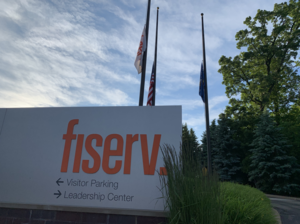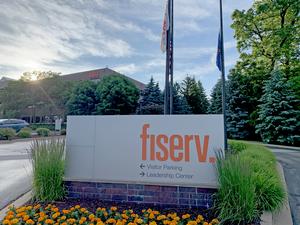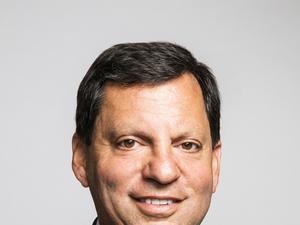Last May, Brookfield financial services technology company Fiserv Inc. announced longtime CEO Jeff Yabuki was stepping down from the position. Yabuki was succeeded by Frank Bisignano later in the year, but Yabuki remained executive chairman for the remainder of 2020.
Since Yabuki became CEO in 2005, he grew the company's value to roughly $65 billion (according to Fortune), which included orchestrating the $22 billion combination with First Data Corp. in 2019, transforming the company into a payments and financial services technology provider with 44,000 global employees.
Yabuki recently talked with the Milwaukee Business Journal in an interview that's been edited for length and clarity.
What were the elements that went into your decision to retire from Fiserv, and what is your next move?
"First of all let me say what a great honor and privilege it's been to lead and transform Fiserv for the last 15 years. It's just been a great journey so far. Early on when I joined Fiserv, I was 45 and I assumed that I would stay at Fiserv five, seven, maybe 10 years and then I would probably go on to do something else and that my successor would then have the opportunity to build on what we had done and hopefully take Fiserv to the next level, and that's really rooted in this belief that I have that organizations benefit from change. We’ve heard the idea of 'change or die' and I never wanted to be in a position that I would overstay my welcome and knew that people and organizations do benefit from new thinking and new ideas. I took that belief and I worked really hard to reinvent myself several times and reinvented the company several times, knowing that ultimately whenever we found the right successor, that we would be prepared for change in what I think is a treasure of a company.
"As part of the First Data acquisition, I had really high hopes and belief that Frank Bisignano would end up being my successor, and that became really clear as we were navigating the pandemic. Starting back in March I had asked Frank to lead the operational efforts and got to work very closely with him and see the different skills that he brought to the party which were, in my mind, complementary to some of the things that I did. Frank believes deeply in our aspiration and our purpose and values, and with those different and more complementary skills, I believe that was a great fit for Fiserv. As hard as it was for me to give up my baby, the time was right and I decided that I would hand the reins over. Really a tough decision because I love the company and its people so much, but the time was right.
"I didn't retire from Fiserv because I didn't want to work. I retired from Fiserv because I, again, believe that new leadership can reinvigorate an organization. I'm taking my time to look and figure out what is next. I'm really focused on opportunities where I can have a positive impact to try to make a difference at a time when I think needs are great, be that in business, in our communities, and really in life in general. I'm really excited about the future, whatever it holds for me, but you can be sure I'm committed to doing my part to help make the world a better place, whatever it is I'm doing, and hopefully I’ll even be able to have some fun along the way."
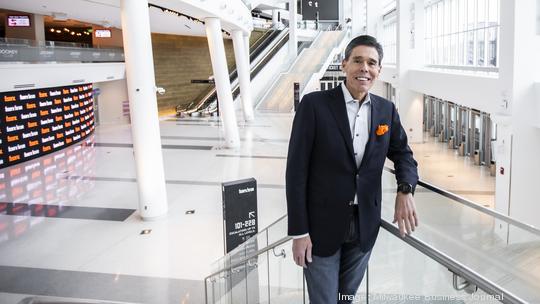
You guided the company through two of the biggest financial crises in U.S. history – the Great Recession and early onset of the Covid-19 pandemic. How did you manage both and what were the main challenges you faced?
"When we got through the Great Recession, I always believed that was the big obstacle and that I would have the opportunity one day to talk to my grandchildren and younger generations about what it was like to lead a company through the Great Recession. Early in my career, I had opportunities to talk to people who had navigated the Great Depression and I remember thinking, 'My gosh, I can’t believe people had to do that,' and then all of a sudden I was in it. I really expected that would be the great exogenous challenge of my business career, and then we all know Covid-19, which really in my opinion is a far more difficult obstacle to navigate, where the Great Recession was narrower and Covid-19 is everywhere.
"The common element between those two situations is that they test you to the core. They absolutely require you to lead differently and to be very, very clear about what matters the worst. In both of these cases it was the sustainability of Fiserv and its people and to be sure that we could support our customers who are really dependent on us to be there for them when they need it. Clearly we had to make difficult and sometimes unpopular decisions to support the greater good, but I'm completely confident that these experiences made me a better leader and in fact I'm far better prepared to navigate whatever the future has to hold."
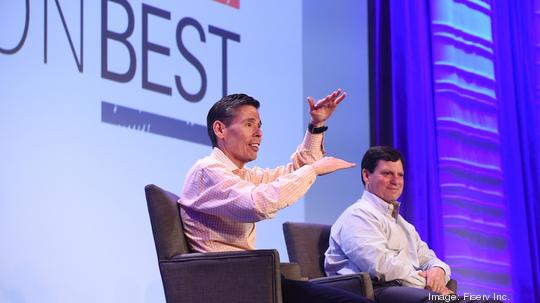
You’ve worked in the financial services and payments industry most of your career. Where do you see fintech heading?
"We are at a really important time in the evolution of fintech and payments, where the combination of having incredible amounts of computing power paired up with the opportunity to unlock the power of data and now the creation of new ways to move money in real time, I believe is the way most of us will move value in the future. It'll take a lot of different forms – contactless for sure, voice, lots of embedded payments, payments that may not have a need for a card at all – and I think when you couple that with fintech, which I think about as the idea of using new technologies to enhance and simplify financial experiences, whether they be consumer or business, is absolutely here to stay. The good news about that is it's going to pressure institutions to be their very best and I believe will ultimately lead to far better experiences for you and me and your kids. At Fiserv, as the original fintech, we expect to play a very important role in making this happen and I know that Frank and the management team are focused on that each and every day."
What is your approach in identifying acquisition targets? And why do some acquisitions fail?
"In my opinion, there are several types of acquisitions. First you have acquisitions that provide additional scale. Next you've got acquisitions that add capabilities, especially in markets that are moving fast and can supplement or even bypass organic innovation to allow you to move faster. Last, those that bring new and complementary capabilities. You have to think about acquisitions as just another tool in the toolbox to allow a company like Fiserv to better serve its clients and to create differentiation. Importantly, all of those types of acquisitions have to be deft against an agreed strategy, a strategic framework, for how you’re going to run the business.
"Acquisitions rarely fail because you didn't have sufficient strategic rationale. It's always easy to talk about why an acquisition fit. It's much more likely that the integration of the acquisition, which is really the hard part because anyone can write a check, but it’s the integration that may not have been done at the right level. The hard work of integration is you have to do it in a way that you don't blunt the very reason why you wanted to do the transaction and why it was appealing. That's not easy. It takes a lot of time, it takes a lot of effort and it takes people dedicated to that 24/7 to make sure that it happens well.
"I would guess that over my time at Fiserv we did more than 25 acquisitions. The reality that I learned, and it was even more clear here than it had been in other parts of my life, is that integrating a smaller transaction takes almost as much time as integrating a large one. I can tell you we didn't always get it right, but thankfully we won more than we lost and most importantly, we made sure that our larger transactions were winners. I think that’s what companies need to do when they're thinking about acquisitions. It’s write a check, and then integrate it as well as humanly possible. You do that, you're going to win many more than you lose."
When looking at the diversity among Fortune 500 CEOs, there isn’t much. Do you feel like a trailblazer in that sense? And why is it important more corporations in America embrace diversity?
"I never thought of myself as a trailblazer. When I joined Fiserv, I was only one of a couple of diverse S&P 500 CEOs and even fewer when we ultimately became part of the Fortune 500. Having a Japanese father and a Jewish mother and going to a parochial school, and growing up fairly economically disadvantaged – all combined – gave me a pretty unique, and I think different, perspective and real diversity of thought, which is the key to why diversity is so important. It's been heartwarming to see, finally, a real sustainable embracing of diversity and inclusion. It’s absolutely critical for all of us. Not just in business, it has to be in life in general. Polarization that we're seeing every day, whether it be in politics or other parts of our lives, it just takes a huge emotional toll and causes us to miss the significant opportunities that are out there for business and everyone else to be inclusive and to add the tremendous value that comes from serving the world – which is incredibly diverse – and bringing that diverse and different thought to our strategies, our tactics and our actions.
"Most important, of all the CEOs that I talked to, it's very clear to me that the group gets it. We need less talk and more action and I think we're going to continue to see that happening each and every day. I'm very confident that we will sustain this movement because it's going not just from the bottom up or the top down, it’s coming from both sides and I think it's going to meet in the middle and we're all going to get more value because we ultimately are more diverse and inclusive and able to see other people's perspectives."
You are also involved in Milwaukee’s arts community and very philanthropic through the Yabuki Family Foundation. Why are these parts of your life important to you?
"I have been blessed with an amazing life. I’ve got a great family and friends and have been given the unique opportunity to play at the highest level and have been fortunate enough to win and to have more Ws than Ls. I believe that we all, no matter what has happened in our lives, have an obligation to give back and frankly for some people like me that's an even higher bar. That bar has to be higher. Growing up as I mentioned – poor – and then having success later, showed me things. It showed me that there are doors that can be opened through having people's minds be open to things like the arts and the opportunities that are out there.
"Seeing the power of strong families and strong communities and the whole idea of the distance that a healthy mind can travel compared to those that may not be there, all of those things are ways to empower people to believe in a better tomorrow. I have seen it in leadership and I've seen it in the community. When people believe in a better tomorrow, you get the best out of them and all that together creates a better world for us to live in."
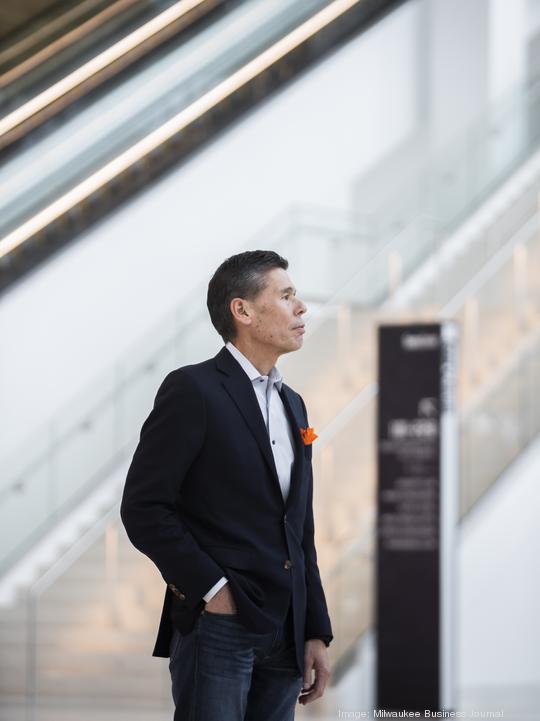
Fiserv Forum has become an icon in Milwaukee and among sports arenas across the globe. It’s also helping Milwaukee attract large events. Why was sponsoring the Milwaukee Bucks arena such a strategic move for Fiserv?
"The naming rights decision was one of the most difficult decisions that I think we made over the years. No fintech had ever done a naming-rights deal and I believed this would be a fantastic opportunity, both literally and figuratively, to elevate our brand, to move our brand to a different level. That elevation would require us to be an even better company and really step up our game to match the fact that we were going to be the naming rights sponsor of the best arena in the NBA.
"Frankly, it has worked out beautifully. Our people are so proud. Our clients are proud to see our name in lights. It's really been made even better because the Bucks organization, they have been absolutely incredible partners and just a pleasure to work with. It's very clear in this kind of arrangement that the right partner is everything and they fit the bill absolutely perfectly. Given all the benefit of hindsight, I would do it again in a heartbeat."
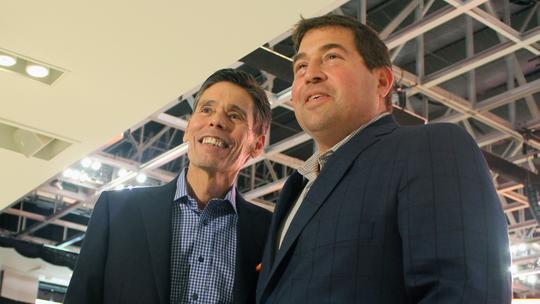
How do you hope to be remembered as CEO of Fiserv Inc.?
"I didn't realize, and I should have, on the fateful day back on Dec. 1, 2005, that every single thing you do, every single day, is a step in building a legacy.
"I had a simple goal. My goal was to leave the company better than it was when I got here, which in this case, given the success that Fiserv had prior to me getting here, it was already a very successful company. I didn’t think that was going to be nearly as easy as it sounds, but I do think we got that done. When I think about this, I really want to be remembered as a leader who cared deeply about Fiserv, that cares deeply about its people, our clients and our shareholders. I want people to remember that we created a long-term strategy that transformed Fiserv into a world's most admired company, elevated our brand, and really established the foundation for future success that will serve well, not just for the first 35 years, but for the next 35 as well.
"If I could boil that all down, I want to be remembered as someone that had a positive impact on the people that were around me."
